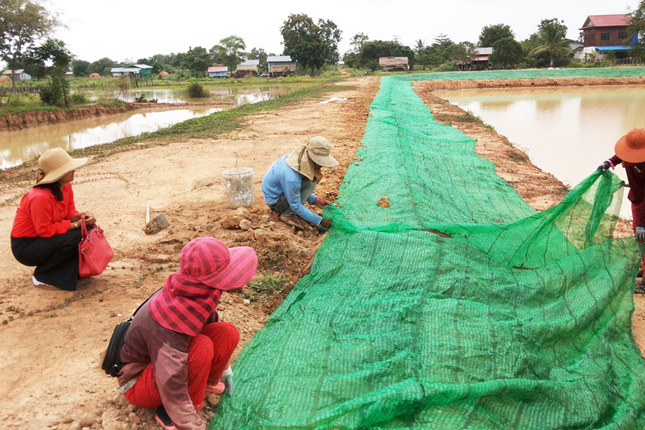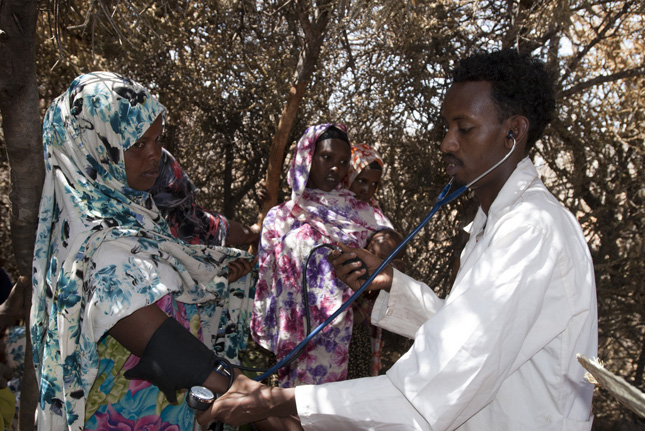-
Granting Rivers Legal Rights: Is International Law Ready for Rights-Centered Environmental Protection?
›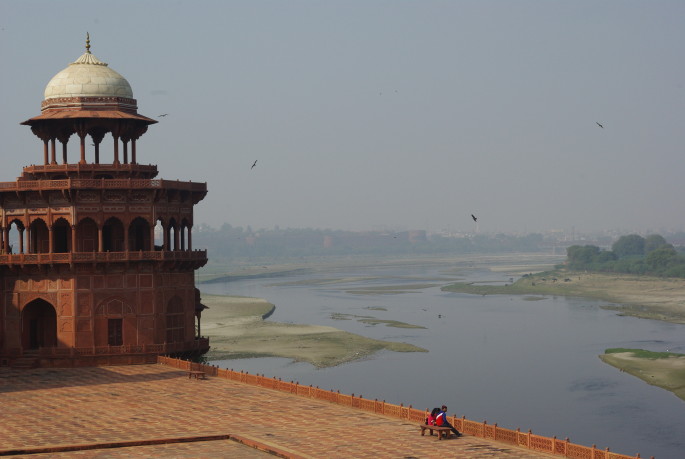
Last year, four rivers were granted legal rights: the Whanganui in New Zealand, Rio Atrato in Colombia, and the Ganga and Yamuna rivers in India. These four cases present powerful examples of the increasing relevance of rights-centered environmental protection. Like corporations, which have legal rights in many jurisdictions, these rivers are rights-bearing entities whose rights can be enforced by local communities and individuals in court. But unlike corporations, these rights are not yet recognized in international treaties. Which raises the question: what are the implications of rights for nature for international environmental law?
-
One Woman’s Story: Preeclampsia Goes Untreated in Ethiopia
› “This is a woman who did exactly what she was supposed to do; she did exactly what we encourage pregnant women to do,” said Amy Dempsey of the Population Council at a recent Wilson Center event on World Preeclampsia Day. The Ethiopian woman was suffering from preeclampsia—a preventable condition—but like many pregnant women in low- and middle-income countries, she did not receive the treatment needed to stop it. “Pregnancy was the first time she had ever stepped foot in a health facility,” said Dempsey.
“This is a woman who did exactly what she was supposed to do; she did exactly what we encourage pregnant women to do,” said Amy Dempsey of the Population Council at a recent Wilson Center event on World Preeclampsia Day. The Ethiopian woman was suffering from preeclampsia—a preventable condition—but like many pregnant women in low- and middle-income countries, she did not receive the treatment needed to stop it. “Pregnancy was the first time she had ever stepped foot in a health facility,” said Dempsey. -
Limited Water for Unlimited Development: Q&A With Shaofeng Jia
›
A quarter of the coal that powers China’s economy is mined in Inner Mongolia, one of the country’s most water-scarce provinces with only slightly under two percent of China’s total water resources. The coal-rich city of Ordos, which produces nearly 70 percent of all the coal in Inner Mongolia, is bookended by expanding deserts—Kubuqi to the north and Maowushu to the south—and may one day run out of water and face a “Day Zero” like Cape Town in South Africa. Both the central and local governments are promoting a number of efforts to create new water supplies in Ordos, such as treating brackish waters and trading water rights. To learn more, the China Energy & Environment Forum recently interviewed Shaofeng Jia, the Deputy Director of Water Resources Research Center at the Chinese Academy of Sciences, who recently completed an extensive study on water-energy confrontations in Inner Mongolia.
-
Weakened by the Storm: Disasters and the Fighting Capacity of Armed Groups in the Philippines
›Many studies on natural disasters and conflict have assumed that disasters make it easier for rebel groups to recruit new members by fueling grievances against the government and lowering the opportunity costs of joining an insurgency, and that this recruitment will increase conflict. But disasters may actually have the opposite effect. My study of rebel groups in the Philippines, recently published in the Journal of Peace Research, suggests that by weakening the organizational structure and supply lines of rebel groups and their ability to enlist new fighters, disasters may instead reduce the intensity of the conflict, rather than increase it.
-
Fragile Families: Scaling Up Healthcare in Conflict Settings
› “How do our interventions provide an opportunity to really work at some of the core drivers of instability or lack of resilience?” said Larry Cooley from Management Systems International at a recent Wilson Center event on scaling up reproductive, maternal, newborn, child, and adolescent health interventions.
“How do our interventions provide an opportunity to really work at some of the core drivers of instability or lack of resilience?” said Larry Cooley from Management Systems International at a recent Wilson Center event on scaling up reproductive, maternal, newborn, child, and adolescent health interventions. -
Sustainable Water, Resilient Communities: The Challenge of Erratic Water
›From the Wilson Center // Water Security for a Resilient World // June 7, 2018 // By Rebecca Lorenzen
Water variability is increasing “due to climate change and to more frequent natural disasters,” said Jonathan Cook, Senior Climate Change Adaptation Specialist with the U.S. Agency for International Development, at the fourth and final event in a series on water security organized by the Wilson Center and the Sustainable Water Partnership. To solve the problem of increasingly erratic water, “business as usual is really not acceptable anymore,” said Will Sarni, founder of WetDATA.org, who called for new, innovative ideas: “Hope is not a strategy.”
-
Pangolins, Terrorism, and Blockchain: May’s Top 5 Posts
›
Pangolin trafficking has reached critical levels, writes Wilson Center Global Fellow Sharon Guynup in May’s most popular post. Originally published in Mongabay, “Pangolins on the Brink” tracks the expansion of the deadly trade in this unique species across Africa, India, China, and even the United States.
-
Every 11 Minutes: Hypertensive Disorders in Pregnancy Are Deadly (and Have Long-Term Consequences for Mothers and Children)
›
“Hypertensive disorders in pregnancy are responsible for over 76,000 maternal deaths globally, killing a woman every 11 minutes,” said Charlotte Warren, Senior Associate at the Population Council, at a recent Wilson Center event about non-communicable diseases in pregnancy, held on World Preeclampsia Day. These disorders complicate 8 to 10 percent of pregnancies worldwide and are trending upward due to increased maternal weight and sedentary lifestyles. “In low-income countries, a woman has approximately 300 times higher risk of dying of preeclampsia and eclampsia than a woman in a high-income country,” she said.
Showing posts from category featured.


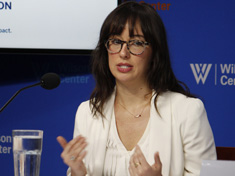 “This is a woman who did exactly what she was supposed to do; she did exactly what we encourage pregnant women to do,” said Amy Dempsey of the Population Council at a
“This is a woman who did exactly what she was supposed to do; she did exactly what we encourage pregnant women to do,” said Amy Dempsey of the Population Council at a 
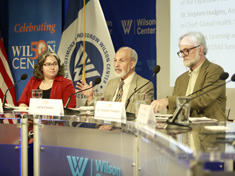 “How do our interventions provide an opportunity to really work at some of the core drivers of instability or lack of resilience?” said Larry Cooley from Management Systems International at a
“How do our interventions provide an opportunity to really work at some of the core drivers of instability or lack of resilience?” said Larry Cooley from Management Systems International at a 